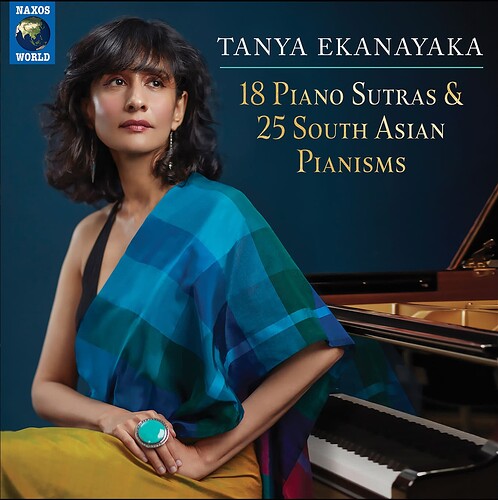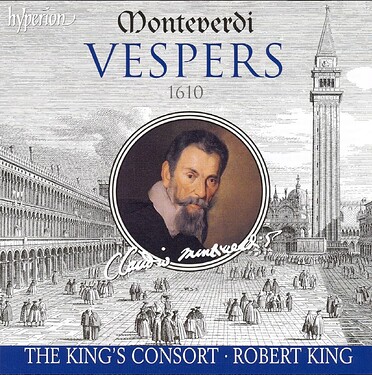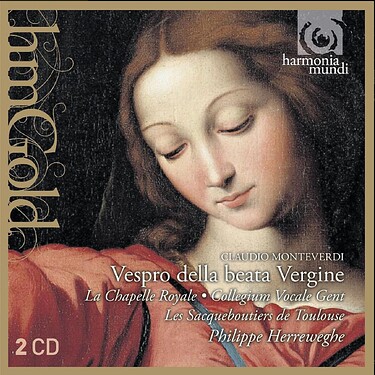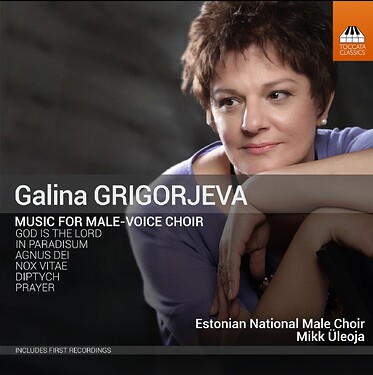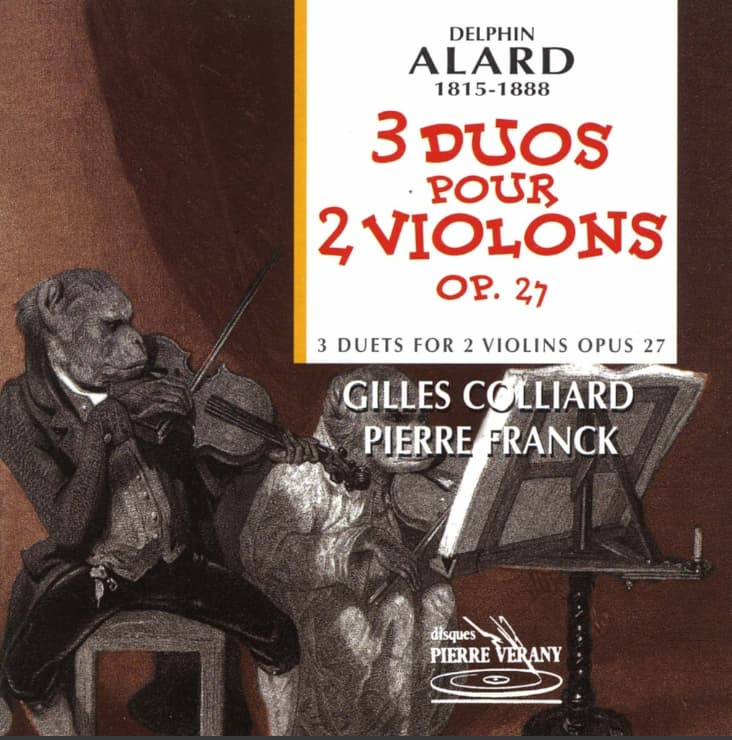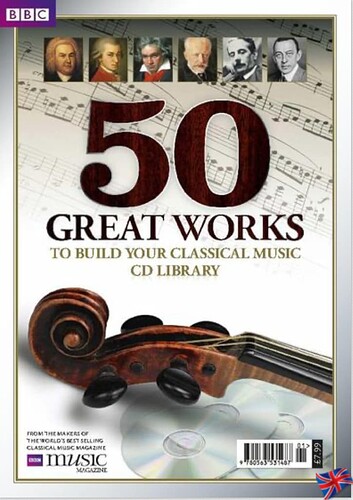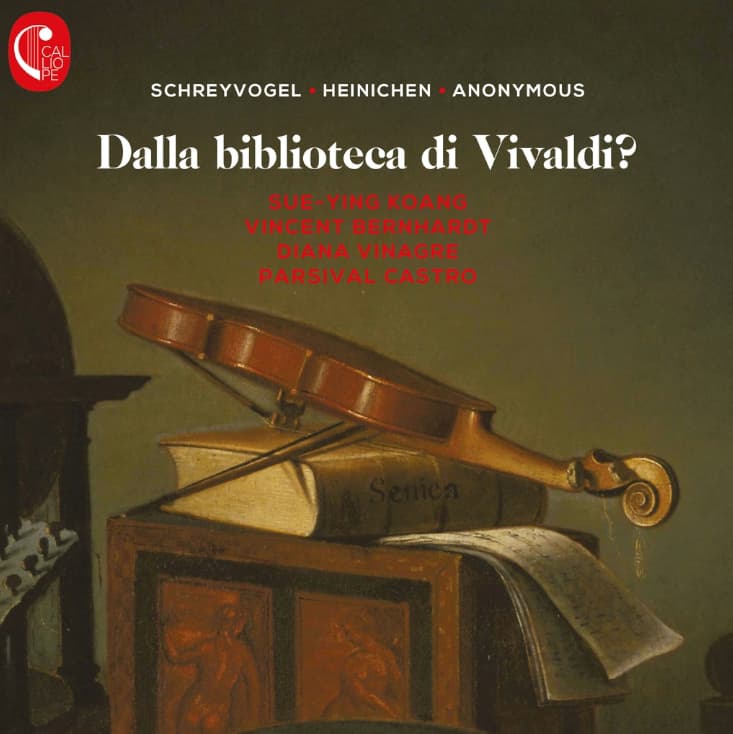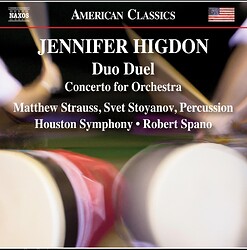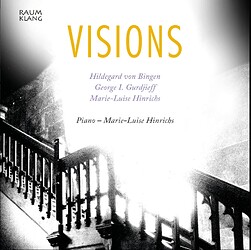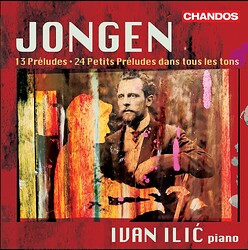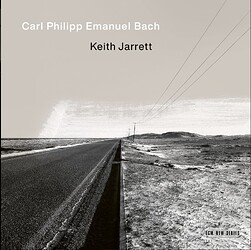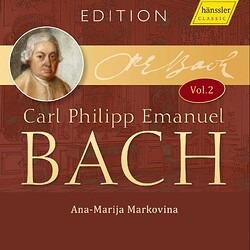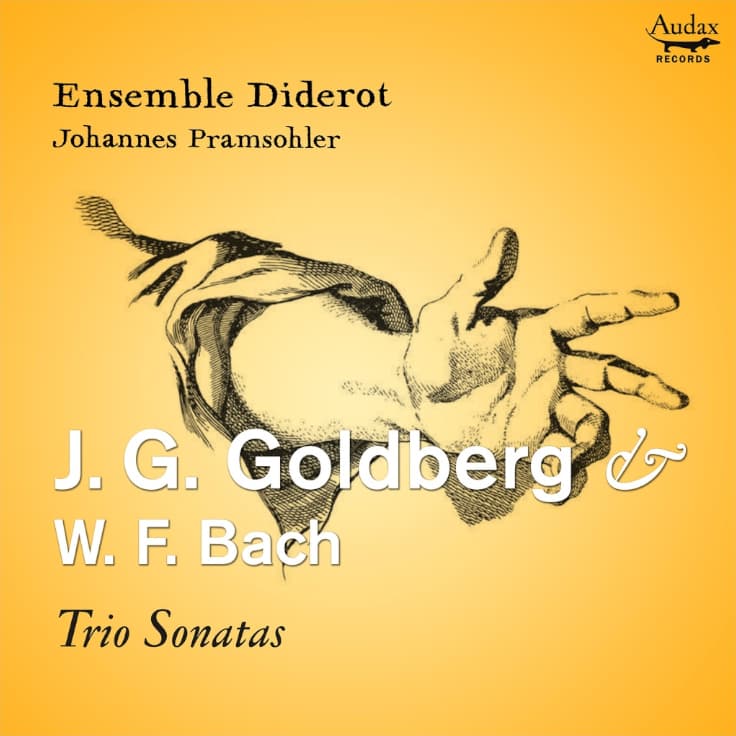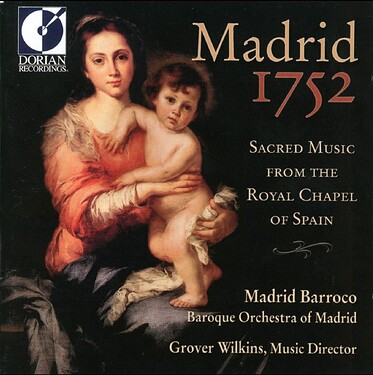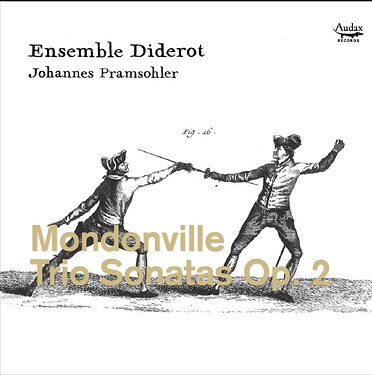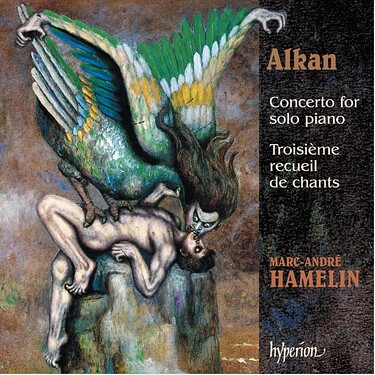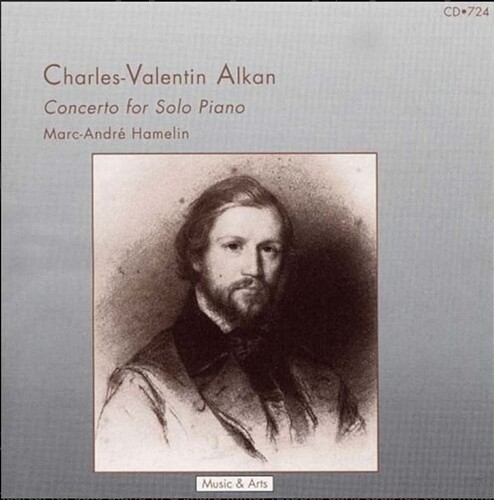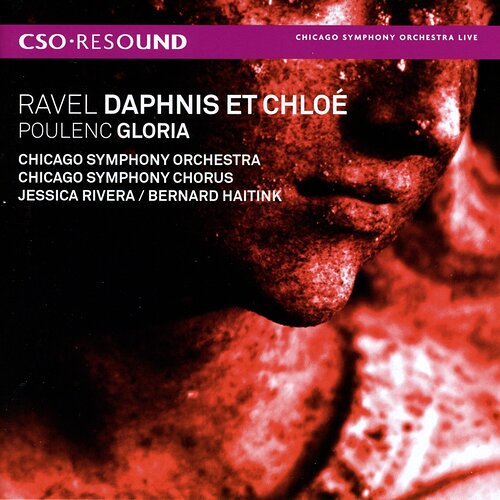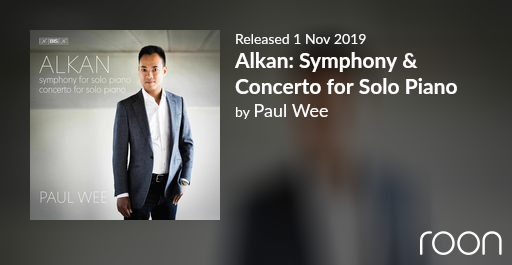Piano music combining western concert hall approach with non-western aural traditions, from Ted Gioia’s best 100 of 2023.
Superb indeed, thanks for your recommendation!
Not easy to choose a favorite recording as this is really ancient music to our ears and many singers are not really trained for that sort of composition. I would go for Jordi Savall´s version as it IMHO sounds most natural, modest in tempi and homogeneous despite from some imperfections in unisono passages:
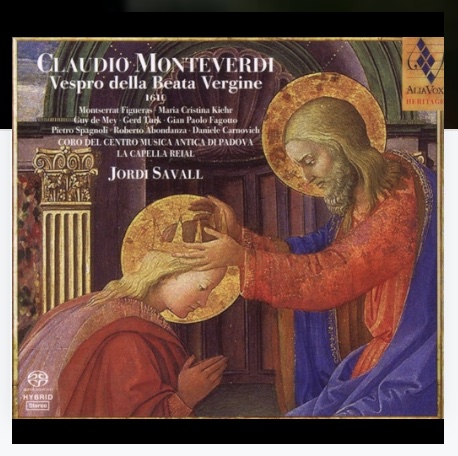
I like the Savall too. Also:
But I don’t think you can stream it, yet…
But this one is on Qobuz now and is good:
lovely.
it highlights however, a consistent problem with Roon and its handling of classical music.
the only Genre listed is “classical”. I’m sure that’s what Roon receives from the label, or the DSP, or both.
but Roon has its own database. what’s the point, if they don’t even use it to provide some additional granularity?
At a minimum, “Choral” would add some much needed context. a knowledgeable listener can infer as much from the title and performers.
but not everyone is knowledgeable, and even a well-versed listener needs some tools for discovery and navigation.
Harman is not going to help fix this.
It’s always a pleasure being able to introduce a near forgotten composer. Jean-Delphin Alard (1815-88) was a violinist, teacher and, to a lesser degree, composer of music for his instrument. He was married to the famous luthier Jean-Baptiste Vuillaume’s daughter, and he is remembered as teacher of Pablo de Sarasate.
The Swiss violinist Gilles Colliard these days released a new album, with Italian Baroque music inspired by the La Follia-theme. Colliard plays the solo parts and directs the Orchestre Chambre de Toulouse. The album is superbly recorded by the Calliope label’s engineering team, and is a worthwhile listen.
By way of this new release I was reminded of Colliard’s much earlier album from 1999 together with Pierre Franck, presenting three violin duos by Alard. Both musicians play with beautiful tone, affording an agreeable listening experience. I can’t remember how I in October stumbled upon this rather obscure album, but it is a beautiful and rewarding listen…
This note is for any folks reading this blog looking for a broad (we get into the weeds on this blog betimes, which I greatly enjoy and learn from), curated introduction to classical music. With ~ 5000 classical music recordings released per year and an enormous backlist, this can be overwhelming to any of us. To help, BBC Music recently published
and it contains, in addition to the primary 50, 10 other recommendations accompanying each of the 50 “best” (best is such a freighted, subjective descriptor) recordings with a very short synopsis for each. That’s 550 recordings, most of which are readily available to listen to from streaming platforms. It provides a broad introduction to this amazing music. Looking through the list, I found some gems I look forward to listening to and some significant holes in my collection. It is an excellent classical music collection building guide. Others please chime in with your suggestions on this matter.
Full disclosure: I have no conflict of interest in making this recommendation.
Well, this album to me was sort of a revelation, a big surprise…
First, the music… taken from a manuscript from the Saxon State Library at Dresden, with several pieces from anonymous composers, hastily copied out at the beginning of the 18th century, and argued to possibly stem from Vivaldi’s personal manuscript collection, taken to Dresden by Pisendel.
Then, the interpretation… impressive baroque violin-playing by the (Chinese?) Sue-Ying Koang. I mean, really impressive style. The concept for the album, the guidance and direction, come by the French keyboardist and musicologist Vincent Bernhardt. Don’t miss out on the booklet, and look up his discography… there’s a wondrous Well-Tempered Clavier Book 1 to be discovered…
Lastly, the sound… maybe a bit too ‘hot’… but a full recorded ensemble sound… and nice balance between soloist and the continuo group… I like this album very much…
A few more classical selections from Ted Gioia’s Best of 2023 list (behind a paywall) I can recommend and have been listening to (all linked to Qobuz USA):
Higdon’s Duo Duel is a beautiful percussion work:
Medieval music/chants at the piano!
Belgian composer, organist, and educator Joseph Jongen (1873-1953) piano music:
C.P.E. Bach originally composed his six sonatas dedicated to the Duke of Württemberg for the clavichord. Jarrett’s piano version is worth listening to, but I overall prefer Ana-Marija Markovina:
I searched for that and found it was already in my library from January 2022. Unplayed.
Thanks for the reminder. It’s excellent. Their Torelli album is also now in my queue.
For a long time I have been enjoying Johannes Pramsohler’s albums with his Ensemble Diderot, especially his releases covering trio sonatas, so popular across Europe during the high Baroque. Bach’s organ trio sonatas were conceived as didactic material for the training of his oldest son Wilhelm Friedemann and, as J.S. Bach kept a copy in his own possession, probably as well for other talented pupils.
One of the most talented keyboard-playing pupils of the older Bach was Johann Gottlieb Goldberg, born in 1727 at Danzig, and from a very young age under employment and tutelage of the Russian Ambassador to Saxony, Count Hermann Karl von Keyserling.
It is more or less accepted fact that J.S. Bach wrote the famous Goldberg Variations for his precocious adolescent pupil who, as possibly somewhat romanticized by Bach’s biographer Forkel, was forced by an often ill and sleepless Keyserling to play at night for his employer on the harpsichord.
Anyway, this recent release by Pramsohler and friends clearly shows the influence of J.S. Bach on Goldberg… if somehow these works had been copied out and forged to be from Bach himself, there would be little doubt raised about it. The album includes four sonatas by Goldberg, and one by W.F. Bach, who also taught young Goldberg. This is an important and enjoyable release…
MADRID 1752–Sacred Music from the Royal Chapel of Spain
Responsories for Christmas & Easter by José de Nebra and Francisco Courcelle
José de Nebra (1702-68) was born in Spain and was best-known for theatre music. Courcelle (1702-1778) was born in Italy to French parents. Good performances. The Responsories are the best works, especially Courcelle. Mediocre sound, not typical for Dorian label. On Qobuz USA
Music Web International, occasionally linked to on these Roon community web pages, has posted it’s
MWI 2023 Recordings of the Year
I’ll be getting to some more Alicia de Larrocha in a bit, particularly her Isaac Albéniz Iberia recordings. Also in the December International Piano was an interview/commentary by Mark Viner on his Charles-Valentin Alkan recordings. I initially focussed on Op. 39, Alkan’s most complex pianistic work, which Mr. Viner has not completely recorded. This triggered my recollection of another recording in my collection, Marc-André Hamelin’s Alkan Concerto, Op. 39, 8-10, for solo piano on Hyperion. This is quite possibly the greatest recording from this amazing artist I’ve yet heard.
Forget the lurid cover art (the Kiss of the Vampire by Boleslas Biegas…, looks more like a harpy to me), this 2006 recording is genius pianism at its highest level, particularly in the first movement, which has more bars of music than Beethoven’s Hammerklavier and comes in significantly less time. Alkan composed a tour-de-force here and Mr. Hamelin stunningly executes the score with exquisite articulation, dynamics and, yes, color. Not a common repertoire choice due to its virtuosic challenges and length. I was attempting to read another music review when I started listening to the first movement. Forget reading. This was a deeply moving performance that demanded my undivided attention. Other performances, including Paul Wee’s, Jack Gibbons’ and John Ogdon’s, while also extremely good, are in a different musical dimension than Mr. Hamelin’s.
If you can enjoy solo piano, composed by a performer/composer who made Franz Liszt feel abashed, by a performer who I think at the time of this recording was (and remains) simply brilliant, you owe yourself a listen.
BTW, the Barcarolle in the Recueil de Chants is another astonishing Alkan composition/Hamelin performance.
That’s an interesting list with contributions by several reviewers, all with their personal musical preferences, but at the end without noticeable national bias… Thanks for posting!
Agree, this is an excellent recording. His first recording of the same work on M&A remains a favorite (I see it on Qobuz US and on Spotify):
I own both. Both excellent, but the color and dynamics on the second were a revelation.
I don’t think I’ve ever heard a Ravel recording by Haitink I didn’t consider good with some excellent or better.
